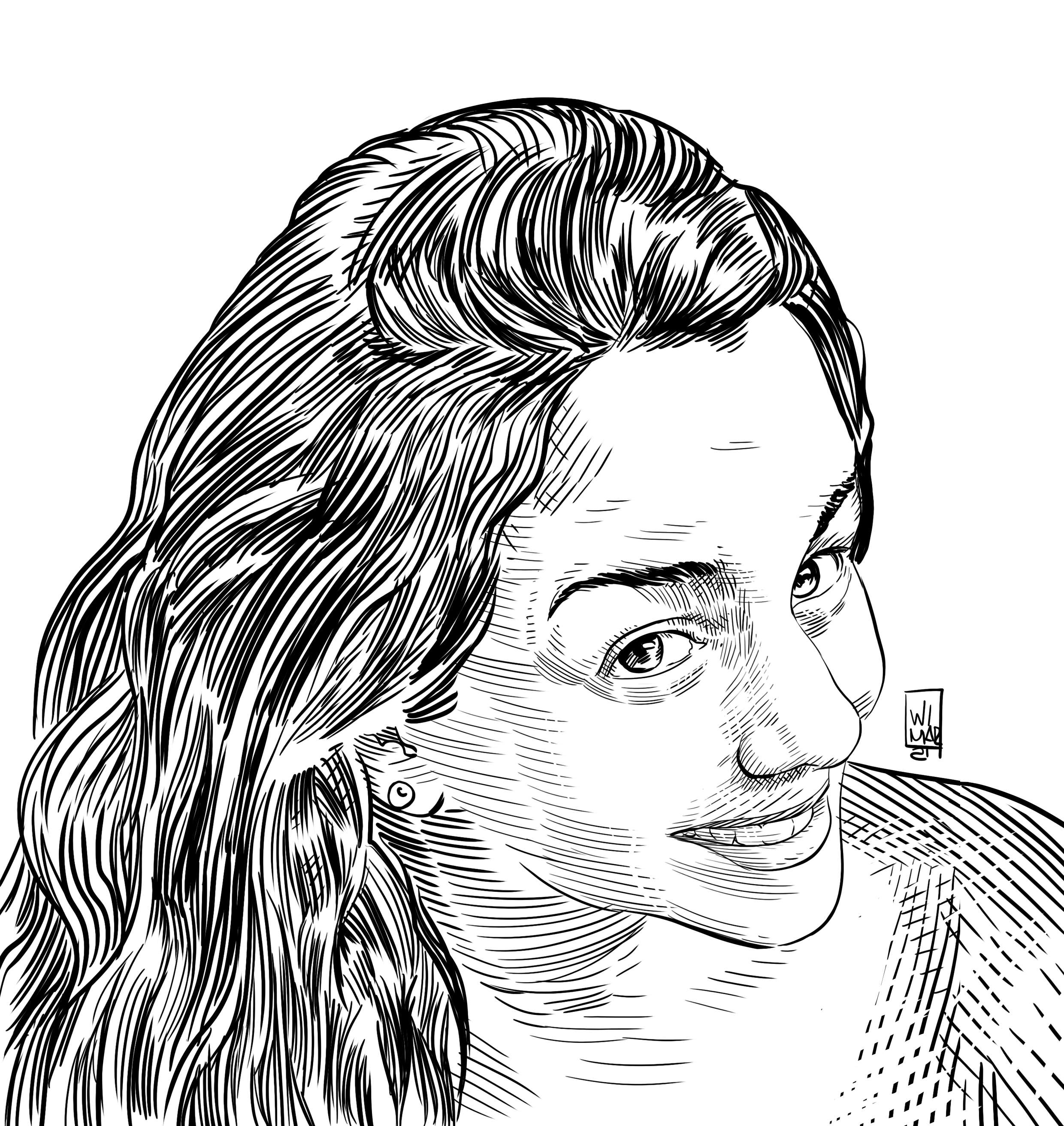Motherhood is a labyrinth with a thousand doors. Every door takes us to an unknown place, and it’s a rollercoaster of emotions. In the middle of this labyrinth, where we end up lost so many times, the door of guilt automatically opens as soon as they put our baby in our arms.
In fact, guilt looms around us like a ghost, even before the baby is born. I personally studied a lot, I read and researched, to be ready when it was time to give birth. However, my first pregnancy had a traumatic ending with an emergency C-section. That was a shock for me, a defeat. It took me time to accept that the way a baby is born has nothing to do with the love you feel for them.
Daniel was a crybaby; he didn’t drink enough milk, he didn’t sleep, and his crying would wake up all the other children in the hospital ward. Nor could I breastfeed exclusively, it was mixed feeding, and my guilt grew exponentially because of that. I drank sweet potato root infusions, a lot of liquid, I ate peanuts, sesame seeds and every home remedy that were foolproof, according to popular wisdom, to make milk. As well as having him at my breast all day, because sucking is what really increases milk production. But nothing, it wasn’t enough. So, I had to carry my baby who wouldn’t sleep in my arms, as well as that guilt, that weighed a little heavier every day that passed.
Other friends who were pregnant at the same time as I had given birth naturally and were only breastfeeding. Everything seemed perfect for them, and I felt like I was a bad mother. I would question myself all the time, punish myself, cry and I felt bad about myself. I’d even sometimes think that I wasn’t meant for motherhood. As if anyone were really made for motherhood. Nobody is born knowing how to do it, nobody.
One of these friends of mine, called me once to tell me how happy she was now she was a mother. Her baby slept all night; it was the most beautiful experience in her life. I didn’t tell her anything, I was embarassed, but those first weeks really weren’t that beautiful for me.
Guilt is fed by this longing to be the perfect mother, the Superwoman that can do everything. The mother that we really become, in the flesh, the human mother, learns every day and grows alongside her baby.
The feeling of guilt doesn’t end in those first few weeks, it evolves somehow, it becomes new fears, new doubts and is always pops up at every stage of your child’s development.
The door to guilt: facing the minotaur
According to society, being a mother is a natural thing that every woman should and can easily accept. Women who decide not to have children are judged too, and they carry the burden of guilt and have to deal with accusatory looks around them. We’re prepared for the role from a young age, playing house, always as the caregiver. If you don’t dream about being a mother, someone with lots of preconceptions will say that you’ll never be complete as a woman.
None of my two children were planned. Being a mother wasn’t one of my immediate plans, or a childhood dream. I’d say I wanted them, but that wasn’t the case either. I trembled with fear the first time I saw the positive pregnancy test. Having a child is a huge responsibility. I didn’t know if I was ready, I had to put lots of plans on standby and rebuild myself as a person. The second test came back positive during a tough time, when Daniel was still young, and guilt also wreaked its havoc then too.
I remember being ashamed to tell my friends I was pregnant again. I felt like they would judge me for having two children in such a short period of time. Society alw ays judges you. If you decide not to have children, if you decide to have many, if you decide not to wait years between them. There is always finger-pointing and opinions, “perfect” people who would do everything differently.
Critique also feeds this minotaur of guilt. Being a mother is a constant learning experience, which is shaped by your own experiences and the need to adjust this role to others you have.
When something happens with a baby, everybody looks at the mother with a reproachful look, seeking an explanation. If children throw a tantrum, don’t sleep so well, are hyperactive, eat a lot of sugar or watch TV (while the mother is trying to get on with other jobs), the mother is criticized.
With everyone questioning our every move, we end up wondering what exactly it is we’re doing wrong. We analyze every step, looking for faults. It isn’t a matter of personal insecurity or being too “self-demanding; a mother’s guilt reflects the pressure of everything a system believes a “good mother” should be.
Even if it’s in the name of guilt, and doubt, we can also question some of our decisions with the purpose of improving, evolving, and fixing some of our actions and behavior. But Guilt lashes us so hard that it doesn’t invite reflection, but is rather a heavy burden on our conscience which tells us – in a prejudiced voice – that it’s never enough.
Amidst this “perfect society”, social media shows us what the perfect mother is a lot of the time, the mother that can do everything, who had a perfectly sculpted body after giving birth, and a smile constantly on her face. It seems like all the poor nights of sleep don’t affect her and she has time to do everything at the same time. We then fall into comparing ourself to this image, which brings us back to guilt again.
Luckily for us, mere mortals, real mothers, are building more and more new spaces that lend towards a debate and give us the opportunity to share our fears and doubts without guilt. However, there are always plenty of attacks whenever we say we’re tired or that motherhood isn’t all roses like we were told. Even our love for our children is questioned, as if it’s a sin to show that motherhood is beautiful, but also exhausting.
Stereotypes that idealize parenthood go against the real experience of every mother or father. The clash with this unknown world, which also stems from our own experiences, creates countless insecurities that aren’t always so easy to process, leading to guilt and feelings of not being enough.
How to face the minotaur of Guilt?
When a baby is born, a mother is also born, many people say. But to tell you the truth, a mother isn’t born then, a mother is slowly built and rebuilt along the way, getting things right and wrong as you’d expect. A series of internal conflicts intersect, which range from guilt, rage, and depression to acceptance. When acceptance finally comes, we begin to enjoy the process at our own pace, and to create our own order within the chaos of life as parents.
Recently, a friend talked to me about guilt and about how hard it is to enjoy this first phase with a newborn while dealing with everything around her. You look back suddenly, you give away the clothes that don’t fit your baby anymore and you wonder if you really made the most of the time with them, if you did everything you wanted to do. That’s when you realize you’re sure that, despite everything, you loved them and love them enough to carry on trying, to do your best within your own expectations and skills.
This is why it’s so important to accept that we aren’t perfect and to let ourselves live out the motherhood experience in every possible way, one day at a time. It’s the only way to be happy and to form a healthy and safe bond with our baby.
Speaking from my own experience, there are some patterns we can see, depending on own life experiences, to face the minotaur of guilt and stop feeding it so much.
Validate our emotions as mothers and fathers, and recognize what we feel
In our case, we try to get Daniel and Emma to accept their emotions and to know that it’s OK to cry, feel bad or have a bad day. Thus, we show them that mommy and daddy can also feel bad and that you don’t always have to be OK. It’s necessary to understand our own feelings, to recognize what is causing our discomfort and to identify the thoughts that nourish our guilt so we can deal with them, even if they don’t completely disappear.
Normalizing and accepting guilt
Guilt is a part of the motherhood labyrinth. As a result, you don’t have to silence it completely, switch it off or hide it, because it helps us to change a lot of the time, from a day-to-day perspective. But yes it does need to be controlled, because when too extreme it stops us from being who we are and making progress. Learning to live with guilt without giving it center-stage, accepting that we are imperfect humans, will allow us to feel freer when it comes to making decisions. Mistakes are valid, they help us to grow and form part of everyday learning.
Admitting that we don’t know the answer to everything and to accept constant learning
The manual on How to be the Perfect Mother doesn’t exist, nor is it feasible. When we had a child, or more, we learned from everyday experiences, the mistakes, the experiences and the different circumstances that make us reinvent ourselves and adapt to our baby. In order to grow up happy and emotionally balanced, our children need parents who are also happy, not perfect.
Rescuing a little bit of me time, within the possible
Guilt in motherhood appears a lot of the time because of our own expectations and the picture of the “perfect mother” that we’ve been fed with the media. Despite roles having changed significantly, there are still lots of people who believe that mothers have to dedicate all of themselves, body, mind and heart to their children, and only their children. This pressure sometimes leads us to demand too much of ourselves and to forget.
However, being a mother doesn’t mean you forget all your other roles, looking for a support network to build your own spaces and to dedicate some time – within the possible – to ourselves. Going out with a friend to talk, having a coffee, working, dedicating time to a partner or yourself, doing something you like or just taking a shower – there’s no rush, which are healthy ways to recover energy, to charge our batteries. That’s because if there’s one thing we’re certain about, it’s that you can’t forget yourself along the way. I know it’s easy to say this, but it isnt. I’m still trying, but responsibilities double when there’s only one child. It’s a debt I have with myself.
Choosing our own way to raise children, even if other people don’t accept it
People around us are always giving advice, some of them question our way of raising and educating. Thus, the foundations of the upbringing strategy we try to take on, shake. Personally-speaking, and I try to seek out a positive and respectful way of bringing them up, I’ve sometimes had to listen to people say the children are spoilt, and need a smack on the bum or severe punishment. But I know that a respectful upbringing will deliver results in the long-term, but it’s tough for a society that grew up with other examples to accept it. This is why it’s important to listen to every recommendation and include the ideas we find pertinent. Although there’s no one better than a parent to make the right decision for their children.
Expressing our emotions
We not only need to accept our feelings and emotions, but we also must share them, express them, especially with other women who are also mothers and have had to deal with this feeling of guilt too. I have a lot of friends who are mothers and we’ve been able to vent together, share experiences and even support each other, from a distance, in this tough, but beautiful, business of having children.
We hug the shadows of the “perfect motherhood”, we give ourselves space to feel, be, heal and grow together with mistakes, smiles, fear, guilt and love. Within this labyrinth, we instill vallues in our children, we educate them, raising them the best we can and then letting them pave their own path.
When we stop aspiring for complete control and see ourselves as human, we also open the doors to empathy and self-love. This is how we build a fairer society for ourselves and our children.
This article was translated into English from the original in Spanish.







Comments
We moderate comments on this site. If you want to know more details, read our Privacy Policy
Your email address will not be published. Mandatory fields are marked with *